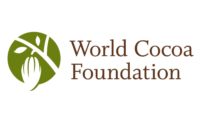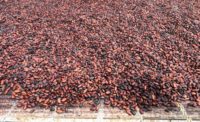
|
Editor’s Note: The following is a report of the World Cocoa Foundation’s recent partnership meeting conducted exclusively for Candy Industry Magazine by Curtis Vreeland, president of Vreeland & Associates.
"Better Cocoa: Driving Transformation & Measuring Success" was the theme of this year’s World Cocoa Foundation’s 21st bi-annual partnership meeting.
Held in Washington, D.C., 300 guests from 28 countries attended the two-day meeting. Notable guests include the prime minister of Côte d’Ivoire, heads of the Ghanaian and Ivoirian cocoa marketing organizations, governor of West Sulawesi, Indonesia, leading scientists and senior leadership from major industries that represent 80% of the global corporate cocoa/chocolate market.
The topic is prescient, given that the current cultivation system is proving to be unsustainable. An estimated 90% to 95% of cocoa is produced under relatively low yields by growers farming an average of three hectares. The trees are aging and disease/insect prone (an estimated 30% to 40% of the world crop is lost to diseases and pests). In short, in many parts of the world, growing cocoa is no longer a viable livelihood.
Kraft Foods VP Bharat Puri described his company’s efforts with driving transformation in the keynote address titled “Creating a More Delicious World.” As the world’s largest chocolate company, Kraft is leveraging its considerable marketing presence in cocoa producing countries.
“Simple changes can make a big difference,” Puri notes. These changes are identified at the community-level and address perceived constraints, such as building wells and libraries, fostering micro-finance loans and improving the students’ mobility by donating over 10,000 bicycles.
But faced with a forecasted yawning gap between rising demand for chocolate products and falling supplies, more work needs to ensure that cocoa farming remains an viable livelihood for the next generation of farmers. Puri urges the attendees to “get on the bus” and collaborate. Apparently his message landed on fertile ground, as representatives from two cocoa producing countries requested in the follow-up Q&A session that “the bus” visit their countries.
Breakout roundtable discussions included fostering strategic coordination for agricultural development; cocoa and climate change in Southeast Asia; the role of public-private partnerships in the U.S. government’s Global Hunger & Food Security Initiative: Feed the Future; addressing child labor; and conserving cocoa genetic resources and others.
Conserving cocoa genetics has become increasingly important as the sustainability of the global cocoa economy depends upon a broad genetic breeding stock foundation. This stock has been seriously eroded in recent years due to the destruction of native rainforests, natural disasters, extinction of traditional varieties and underfunded germplasm collections. Fortunately, an international initiative, called CacaoNet, is developing a strategy for the conservation and utilization of these resources. Some of the benefits of CacaoNet are conserving the genetic diversity of these critical cacao genepools and strengthening the safe exchange of cacao germplasm, according to Brigitte Laliberté, a consultant with Biodiversity International,
“Measuring results” was the central theme in the “Developing a Sustainable Cocoa Monitoring and Evaluation Platform” session. The CocoaMAP, described as a sector-wide global platform for measuring progress and impacts, was introduced by Dennis Macray, who formerly led Starbucks coffee sustainability programs.
“The concept for this project started at the WCF meeting last year (May, 2011) and evolved over the past year, to include establishing technical working groups with multi stakeholders,” Macray explains. CocoaMAP will be launched this fall and initially will include Côte d’Ivoire, Ghana and Indonesia. The final report that includes summary data in an easy to assess dashboard and data drill-down capability is expected in spring 2013.
Since 2000, the World Cocoa Foundation (WCF) has been at the forefront of promoting sustainable agricultural stewardship and economic development in cocoa-growing communities. Its annual two-day partnership meeting provides a vantage-point for assessing progress and for coordinating international efforts for improving cocoa farmers’ livelihoods.
“By collaborating across the cocoa supply chain with governments, civil society and the cocoa and chocolate industry, we’re able to maximize funding, training and know-how to more widely boost scale and accelerate development and change in more areas, more quickly than if we were to go it alone,” said WCF Chairwoman and Kraft Foods’ VP of Public Policy Anne Alonzo in prepared remarks.
Examples of this collaboration process included Memoranda of Understanding signed with the U.S. Peace Corps, Ghana Ministry of Employment and Social Welfare and Côte d’Ivoire Ministry of Employment; Letters of Intent signed with UNDP and the G8 Food Security Summit; hosting in partnership with The World Bank and International Finance Corporation the CocoaVision 2020 Workshop in Davos, Switzerland; and expanded partnerships with the U.S. Department of Agriculture Foreign Agricultural Service’s Borlaug and Cochran Global Cocoa Fellowships.
Having attended several WCF partnership meetings over the years, it is truly amazing to witness how this organization, in only 12 years since its founding, has positively benefited the entire supply chain of the cocoa industry. President Bill Guyton and his very able staff desire much credit for hosting such a well-managed and informative gathering.



